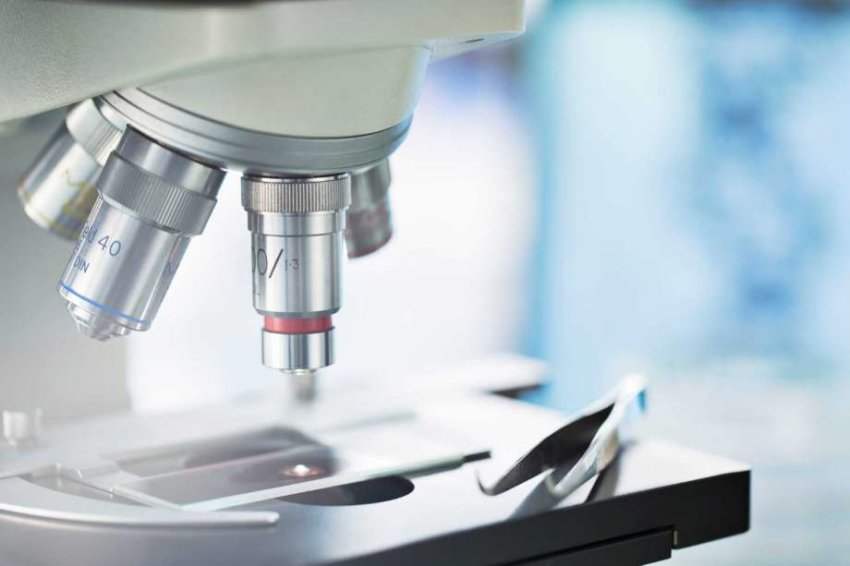Six new grants in 2017 bring cumulative giving by the Fund to $20.7 million
Trustees of the Max and Minnie Tomerlin Voelcker Fund have approved more than $2.3 million in new research funding for rising investigators at The University of Texas Health Science Center, now called UT Health San Antonio. William L. Henrich, M.D., MACP, president of UT Health, announced the funding today.
The Voelcker Fund Young Investigator Awards will provide $150,000 a year through 2019 to five outstanding faculty. A sixth award of $75,000 will support a one-year pilot study.
The Voelcker Fund is dedicated to advancing medical research in key areas, including cancer and heart disease. The UT Health awardees are studying various aspects of these diseases. The cancer-related projects focus on the most difficult-to-treat brain, breast and colorectal tumors and innovative new immunologic cancer therapies. Another project seeks to improve heart function damaged by aging.
“UT Health San Antonio researchers are studying cancer and other diseases for which there are few answers,” said Banks Smith, Voelcker Fund trustee. “We want to see these quality research programs flourish and provide the answers society needs.”
“Since 2007, the Voelcker Fund has awarded nearly $21 million to fund research and educational programs at UT Health San Antonio,” President Henrich said. “The Young Investigator Awards support innovative research aimed at curing diseases that greatly affect the health of our population. We are grateful to the trustees for their generosity and vision.”
Each gift honors the memory of Max and Minnie Tomerlin Voelcker, who were successful dairy farmers for many years in San Antonio.
Voelcker Fund awardees are researchers on the rise
The 2017 Voelcker Fund Young Investigator Award recipients, all from the Joe R. & Teresa Lozano Long School of Medicine at UT Health San Antonio, are:
—Ann Griffith, Ph.D., assistant professor of microbiology, immunology and molecular genetics. Dr. Griffith is studying how radiation and chemotherapies damage connective tissue cells in the thymus, a gland that aids in producing immunity. Her project will test whether adding dietary antioxidants during radiation or chemotherapy can boost thymus and T cell recovery.
—Zhijie “Jason” Liu, Ph.D., assistant professor of molecular medicine. Dr. Liu is studying mechanisms of hormone resistance in breast cancer and the role of estrogen receptor-bound enhancers.
—Andrew Pickering, Ph.D., assistant professor of molecular medicine and member of the Barshop Institute for Longevity & Aging Studies at UT Health. Dr. Pickering is studying a gene called TXNRD2 as a novel pharmacological target to improve heart function.
—Gangadhara Sareddy, Ph.D., assistant professor of obstetrics and gynecology. Dr. Sareddy studies hormonal and epigenetic signaling involved in the progression of ovarian cancer, breast cancer and glioblastoma. His project will also focus on two epigenetic drugs as a novel therapeutic approach to treat glioblastomas, the deadliest of brain tumors.
—Alexei Tumanov, M.D., Ph.D., associate professor of microbiology, immunology and molecular genetics. Dr. Tumanov’s project seeks to understand the fundamental mechanisms of immune regulation of colorectal cancer to develop new immunotherapeutic treatments.
—April Risinger, Ph.D., assistant professor of pharmacology. Dr. Risinger’s pilot project will focus on the molecular mechanisms of anticancer drugs called microtubule stabilizing agents.
“The Voelcker Fund medical advisory committee continues to have high praise for the quality of our researchers’ applications,” said Andrea Giuffrida, Ph.D., vice president for research at UT Health San Antonio. “This is a credit to our faculty and the scientific excellence of their programs.”
Voelcker Fund’s generous history of giving
In addition to the Young Investigator Awards, the Voelcker Fund supports the Voelcker Biomedical Research Academy, which provides an immersive biomedical research education and college preparatory program for San Antonio-area high school students, and the Voelcker Biosciences Teacher Academy, which is creating a network of empowered educational professionals who work collaboratively to improve math, science and health education.
Over the history of the Voelcker Fund, the trustees have supported more than 30 scientists at UT Health San Antonio. “The trustees’ investments play a major role in helping these young future leaders in medical research to launch their scientific careers,” President Henrich said.
UT Health San Antonio also benefits from two endowed chairs established by the Voelcker Fund. The Max and Minnie Tomerlin Voelcker Distinguished University Chair in Targeted Cancer Therapy is held by Tim Huang, Ph.D., professor and chair, Department of Molecular Medicine. The Max and Minnie Tomerlin Voelcker Endowed Chair in Cancer Health Disparities and Outreach is held by Amelie G. Ramirez, Dr.P.H., professor and interim chair of the Department of Epidemiology and Biostatistics and director of the Institute for Health Promotion Research. Dr. Ramirez is a member of the prestigious National Academy of Medicine.
Read more news from UT Health San Antonio: UT Health Cancer Center announces new director
The University of Texas Health Science Center at San Antonio, with missions of teaching, research and healing, is one of the country’s leading health sciences universities and is now called UT Health San Antonio™. UT Health’s schools of medicine, nursing, dentistry, health professions and graduate biomedical sciences have produced more than 33,000 alumni who are advancing their fields throughout the world. With four campuses in San Antonio and Laredo, UT Health has a FY 2017 revenue operating budget of $806.6 million and is the primary driver of its community’s $37 billion biomedical and health care industry. For more information on the many ways “We make lives better®,” visit www.uthscsa.edu.


